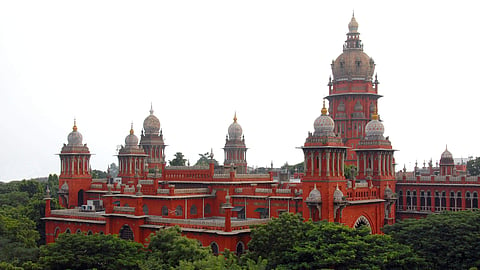

CHENNAI: In a significant verdict, the Madras High Court has upheld the authority of the State Goods and Services Tax (GST) authorities to block the electronic credit ledger (ECL) of firms found wrongfully availing input tax credit (ITC) until investigations are completed.
“This Court is of the considered view that the negative blocking is well within the scope of provisions of Rule 86A of GST Rules,” Justice Krishnan Ramasamy stated in a recent order, dismissing writ petitions filed by Chennai-based Skanthaguru Innovations Private Limited.
The petitions, submitted by J. Arun Balaji, the company’s authorised representative, sought to quash the notice in Form ASMT-10 issued on 26 September 2024 by the Commercial Tax Officer, Thiruvallikeni Circle. The notice blocked the electronic credit/cash ledger and requested the ledger be unblocked.
The Central GST authorities had initiated proceedings against the company for fraudulently availing ITC amounting to Rs 6.8 crore for the period up to March 2024. Simultaneously, the State GST authorities discovered wrongful availment of ITC totalling ₹13.10 crore for the period up to September 2024.
Senior advocate Sathish Parasaran, representing the petitioner, argued that the blocking of the ECL without the availability of any credit was entirely contrary to the provisions of Rule 86A.
He also questioned the concurrent jurisdiction of the State authorities, pointing out that the Central authorities had already initiated proceedings for the same issue, including conducting searches and arresting one of the company’s directors.
However, Additional Government Pleader C. Harsharaj, representing the State GST authorities, contended that the State’s actions were valid as the period and quantum of wrongful credit in question differed from that addressed by the Central authorities. He argued, “There is no bar either in any statute or in any ruling of the High Court or Supreme Court against the State authorities in this regard.”
The State authorities, he added, are empowered to block credit in the ECL if it is fraudulently availed and either available at the time of blocking or subsequently utilised. He asserted that this is necessary to protect state revenue.
Justice Ramasamy supported this view, ruling, “The State authorities are empowered to pass blocking orders to the extent of credit which was fraudulently availed and available in ECL for discharge of output tax liabilities either at the time of blocking or subsequently, in the event the same was already utilised.”
The court also clarified that while the issues raised by the Central and State authorities might appear similar, both authorities are entitled to initiate proceedings if they pertain to different periods.